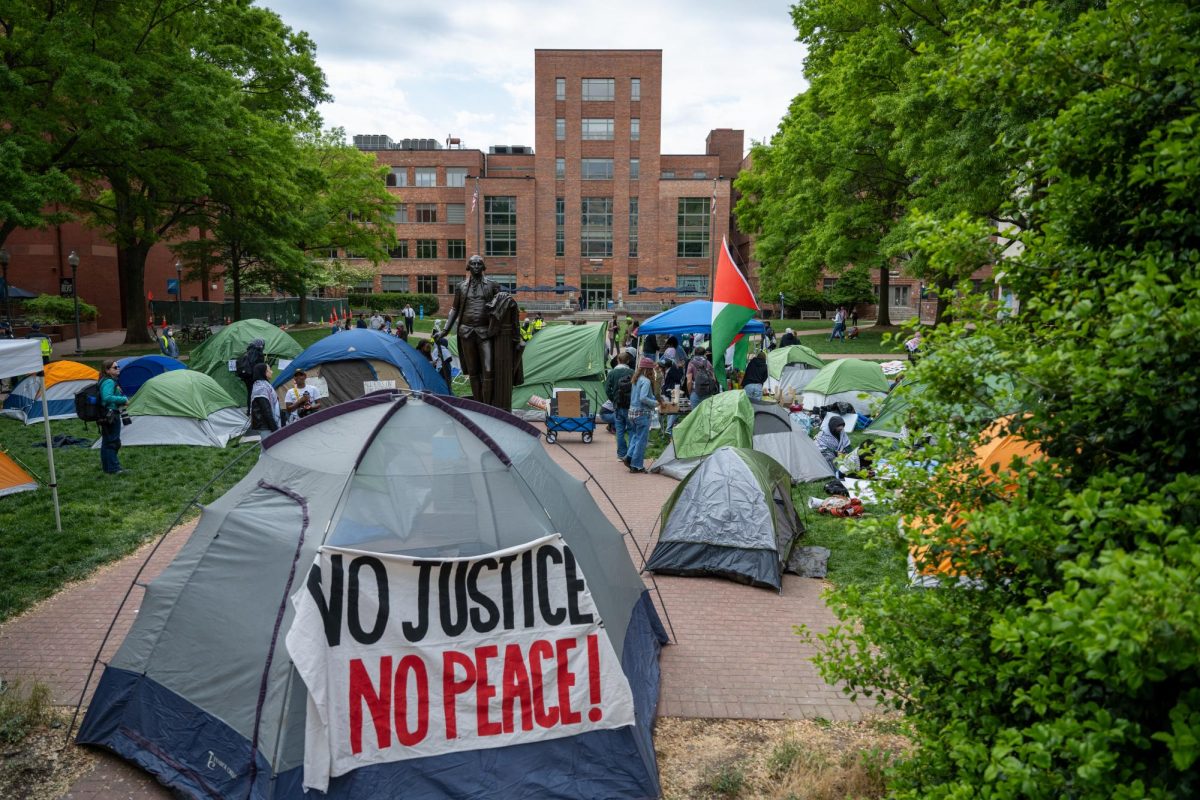Students returning from spring break became fully engaged in debate over the justification, coverage and future of the war in Iraq this week.
Most students said they have constantly been tuning into the news, while others said war coverage has taken over the airwaves and they have decreased their television watching. Professors said they have turned classroom discussions toward war to address student concern.
“I’ve been watching the news three to four times a day, probably too often,” junior Patrick Linsey said. “You can definitely watch this stuff too much. CNN and the other networks repeat the same stuff over and over again.”
“The news keeps repeating the same stuff. Fifteen minutes a day is all that you need,” sophomore Ramino Gonzalez said.
Despite constant coverage of the war from media outlets, most students said they feel safe at GW. The University sent out an e-mail to all students over spring break stating that GW’s alert status was at “normal.” The University also posted “preparedness helpful hints” in residence halls and online Sunday.
“I’m not going to attempt to be extra careful,” sophomore Jeffrey Buckler said. “It feels the same as if it were not a time of war, except maybe more sirens. There’s nothing to be afraid of at this point.”
“I feel safe. If something happens, it happens. You can’t worry about it,” junior Louisa Leuchs said.
Some students noted nervousness about returning to D.C. from spring break and thought the University should do more to protect its students.
“The University needs to have more correspondence with students,” freshman Melissa Eckels said. “Its e-mails are generic and not comforting. There is danger, and (GW) throws common sense at us, not real plans.”
Students voiced both agreement and dissent with the decision to go to war.
“I support the war because Americans have been at risk for too long now,” freshman Michael Frenette said. “Whether or not Saddam has weapons, we shouldn’t have a loose cannon threatening us and our allies.”
Other students, however, have held strong anti-war voices since the conflict came into focus a few months ago.
“I don’t believe that Saddam Hussein is a threat to this country,” junior Alex Friedman said. “We’re sending American boys and ladies to be killed.”
International affairs and political science professors said they have discussed the war during or outside class with students.
“The world is exploding around us. We need to make sense of this in class,” said Jerrold Post, director of the political psychology program and an expert on Saddam Hussein. “I don’t want to see a student who is just responsive to superficial treatment from the media … the most fearful situation is one graced with ignorance. By talking, students may feel more secure.”
In Post’s “Political Violence and Terrorism” class Wednesday, he discussed the situation with Iraq. Topics of discussion included Iraq’s support for terrorism and al Qaeda and whether Saddam Hussein is still alive.







